CMN 316
Questioning Data

1. Course Description
The course examines how political and professional agendas shape the collection and reporting of numerical data and the techniques for assessing the validity of quantitative research. Students will learn to think critically about the use of data in both professional settings and daily life and to develop numerical literacy and research skills necessary to understand and craft messages that communicate the results of quantitative research to public and professional audiences.
Last Revised
Prerequisites
CMN 100 or CMN 114 or CMN 124 or CMN 200 or CMN 201 or CMN 207 or CMN 279 or CMN 300 or CMN 373 or Direct Entry
Delivery
Lecture: 3 hours
2. Course Objectives & Learning Outcomes
- The ability to critically evaluate quantitative research methods
- The ability to interpret quantitative research reports
- The ability to craft written reports that present the results of quantitative research
3. Topics Covered
- How to read and critique research, philosophy of numbers
- Questioning the research context
- Questioning research design
- Questioning the interpretation of results
- The art of reporting research results
4. Teaching Method
Online Lectures and Activities
Graded Assignments
Evaluation will include at least one major written assignment, weekly assignments, and participation in online discussion
5. Course Materials
Course Resources
Wilkins, K. (2010). Questioning Numbers: How to Read and Critique Research. Oxford University Press. ISBN 9780199747399.
6. Policy
6.1 University Policies
Students are required to adhere to all applicable university policies found in their Online course shell in D2L and the Course Outline Policies.
6.2 Print and Digital Copying Guidelines:
Toronto Metropolitan University complies with Canada’s Copyright Act which protects both creators/owners and users of copyrighted materials. Students should familiarize themselves with TMU Copyright policies and procedures, and contact the Copyright and Scholarly Engagement Librarian at copyrt@ryerson.ca for questions, concerns and clarification of the copyright rules.
6.3 Turnitin.com
Turnitin.com is a plagiarism prevention and detection service to which Toronto Metropolitan University subscribes. It is a tool that helps instructors determine the similarity between student work and the work of other students who have submitted papers to the site (at any university), Internet sources, and a wide range of books, journals, and other publications. While it does not contain all possible sources, it gives instructors some assurance that students’ work is their own. No decisions are made by the service; it generates an “originality report,” which instructors must evaluate to judge whether something is plagiarized.
Students agree by taking this course that their written work will be subject to submission for textual similarity review to Turnitin.com. All submitted papers will be included as source documents in the Turnitin.com reference database solely for the purpose of comparing the similarity of such papers. Use of the Turnitin.com service is subject to the terms-of-use agreement posted on the Turnitin.com website. Students who do not want their work submitted to this plagiarism detection service must, by the end of the second week of class, consult with their instructor to make alternative arrangements. Even when an instructor has not indicated that a plagiarism detection service will be used, or when a student has opted out of the plagiarism detection service, if the instructor has reason to suspect that an individual piece of work has been plagiarized, the instructor is permitted to submit that work in a non-identifying way to any plagiarism detection service.
6.4 Email Communication
Toronto Metropolitan University requires that any official or formal email communication from students be sent from their official Toronto Metropolitan University electronic accounts.
6.5 Video and Audio Recording
No video or audio recording is permitted in class without the express permission of the instructor.
7. Learning Management System
Toronto Metropolitan University supports Brightspace by D2L as its official Learning Management System. University Policies governing Brightspace have been documented at the Courses @ Toronto Metropolitan University Privacy and Security website.

